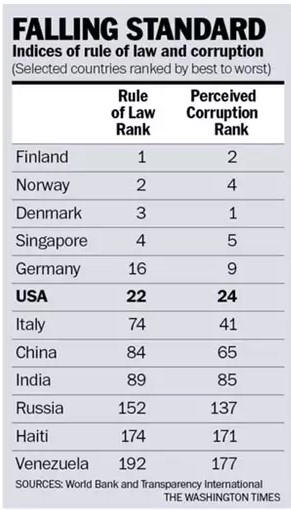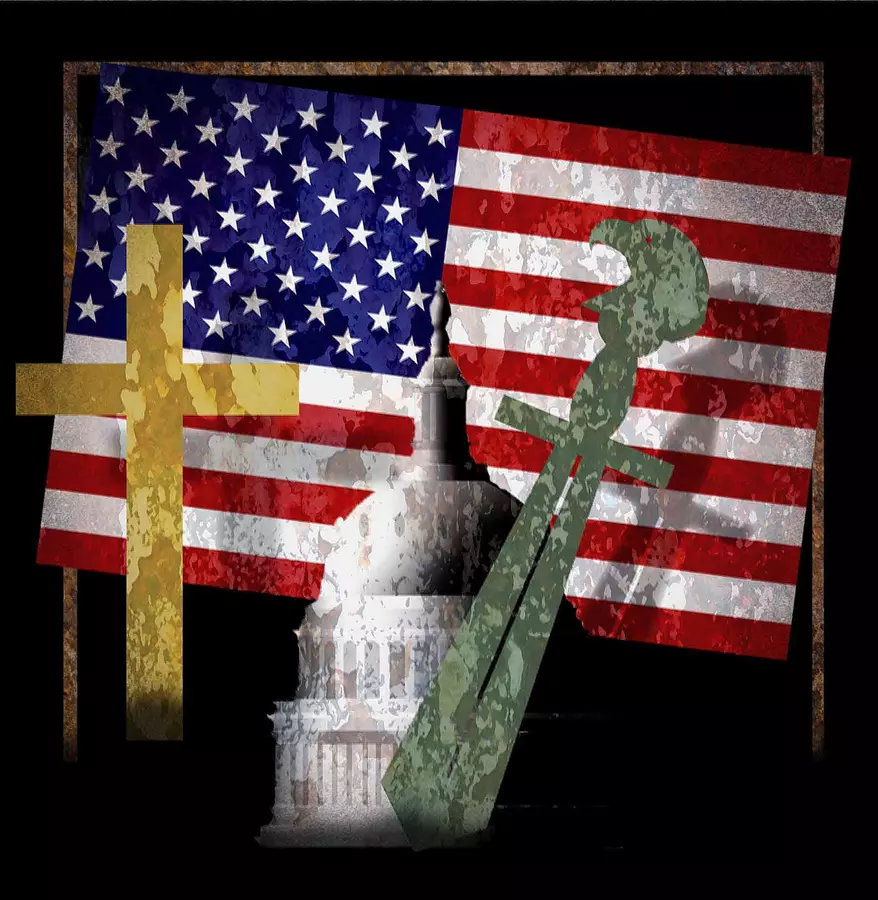A functioning democracy and civil society depend on most people having a high level of honesty and a low tolerance for corruption by those in government. The U.S. in the past was justifiably known for its adherence to the rule of law and high level of civic honesty.
Members of Congress are rarely censured by their colleagues for misbehavior, but last week the former chairman of the House Intelligence Committee, Rep. Adam Schiff, became one of the very few since the Civil War to receive that dubious distinction. Mr. Schiff is a pathological liar who, even when confronted with overwhelming evidence of his lies and the damage they did, continues to spout them. Over the past 200 years, Congress has occasionally had members who do not meet minimum moral and ethical standards and, like Mr. Schiff, showed no remorse. Yes, Mr. Schiff is a deviant personality who managed to get himself elected. Such things happen. What was harder to understand is the number of members of Congress who acted as if Mr. Schiff were the wronged party — showing they also have no standards — which does not bode well for the American republic.
Those Americans who have been paying attention are, in most cases, distressed about the apparent bribe-taking and other felonies committed by the Biden family. These are Third World-ruler types of crimes, which are not historically characteristic of the U.S.
Even more distressing are the alleged cover-ups of wrongdoing by senior officials at the Department of Justice and the FBI. Strong, competent and honest institutions are a hallmark of any democratic republic. It is not possible to have equal justice, fairness, and the rule of law if the institutions created to ensure these rights are not structured and maintained by individuals with knowledge, integrity and high standards.
There are several organizations that have developed indexes that attempt to measure a country’s adherence to the rule of law and level of corruption. The major indexes are largely consistent with one another. The accompanying table uses the latest data (for 2022) from the World Bank as a measure of the rule of law and the rankings by Transparency International of the measure of perceived corruption.
These indexes are updated each year. What is of particular concern is the ranking of the U.S. has been falling over the past quarter of a century. In 1996, the U.S. ranked 16th in the rule of law and 15th in perceived corruption. As can be seen in the table, as of 2022, the U.S. has fallen to 22nd in the rule of law and to 24th in perceived corruption. That’s a long way from the gold standard of these measures that used to characterize the U.S. Public opinion surveys show that Americans increasingly believe that there are two standards of justice, depending on how well connected one is or of which identity one is a member.
The effects of government corruption go well beyond those directly involved. If you, as a business person, have the choice between investing in a jurisdiction that is known for being noncorrupt and enforcing the rule of law versus a jurisdiction that tolerates corrupt government officials and judges, other things being equal, you are likely to invest in the less corrupt jurisdiction. It should be of no surprise that the countries with the least corruption and the most faithfulness to the rule of law also have the highest per capita incomes and vice versa.
Most African countries lack a strong rule of law and, as expected, attract relatively little foreign investment. Countries that were relatively poor a few decades ago, such as Singapore, South Korea and Taiwan, have become rich in part because foreign investors feel secure that the courts will treat them fairly.
Corruption can take many forms — all of them damaging. There is straightforward bribing of government officials and judges to give favors to parties that have issues before them. In some cases, government officials threaten or take direct action against whistleblowers who have reported misdeeds within their organization. This past week, whistleblowers made that charge specific against FBI Deputy Director Paul Abbate. Another form of corruption occurs when prosecutors who swear an oath to uphold the law ignore their duty and allow alleged criminals to roam free on no or lesser charges for political or ideological reasons, which appears to be what happened in the Hunter Biden case.
Cities like Chicago, Philadelphia and San Francisco, which are perceived as being increasingly corrupt, are now seeing a flight of businesses and their employees, resulting in a diminished tax base. The commandment “thou shall not steal” is a nearly universal standard regardless of religion. Without people being basically truthful and not engaging in the theft of others’ property, economic prosperity and civil society cannot exist. Standards are not just things our mothers taught us. They are necessary for progress.
• Richard W. Rahn is chairman of the Institute for Global Economic Growth and MCon LLC.
https://www.washingtontimes.com/news/2023/jun/26/effects-of-government-corruption-on-democratic-rep/
© Copyright 2023 The Washington Times, LLC.

